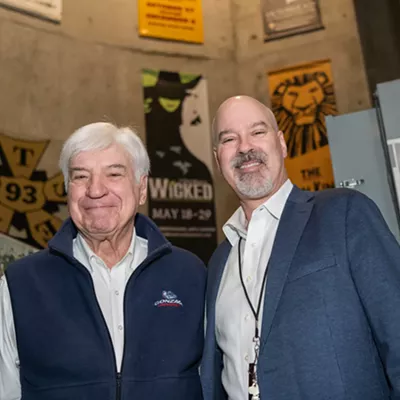It used to be that we tried to get more people to vote. In 1870, the 15th Amendment eliminated disenfranchisement over race, officially at least. In 1920, women won the vote. In 1965, a variety of impediments were removed by the Voting Rights Act. In 1971, Americans as young as 18 were allowed into the booth. And in 2006 here in Spokane County, we went to a vote-by-mail system to make it easier to be a part of our democracy.
Lately it's been going the other way, however. The Supreme Court just overturned significant parts of the Voting Rights Act, allowing many states to throw up some of those same old roadblocks again. Even former Speaker of the U.S. House of Representatives Jim Wright could not get a voting ID card in Texas because of new restrictions.
Apathy is even worse. After steadily climbing until 1960, national turnout has been receding. Locally, after an initial vote-by-mail burst, turnout in Spokane County has settled in around where it was before. And that means that in an off-year primary, like we just had in August, as few as 22 percent may vote. Yes, you can win a primary with 12 percent of the registered voters — not exactly a mandate. Then, in the general election, just having an "R" by your name can win you election after election, as demonstrated by the long, puzzling career of Prosecutor Steve Tucker.
Are we just too busy to bother with democracy? We have to wake up: Low turnout is preventing us from tackling our most profound challenges; it also explains the huge disconnect between the needs of the nation and the priorities of the political parties. With their numbers dwindling, voters have lost their primacy to the party bosses and Super PACs.
So with another general election in the books — and probably just half the registered voters bothering to participate — it's time for another reminder that American democracy is no guarantee.
Of course, it's not just about voting — citizens must understand the issues. A life-long civics education is the foundation, and in significant ways, we are failing at that, too. But we could also make our elections a lot less annoying. In Canada, they limit their national campaigns to three weeks. That sounds pretty nice. Finally, technological innovations are worth a look. If we could work out the kinks and vote from a smartphone — you know, in between fevered rounds of Candy Crush and chuckling over Katy Perry's latest Tweet — we could reach people where they live.
Ben Franklin famously qualified the Continental Congress's gift of a republic by adding, "if you can keep it." Well, can we? ♦
























